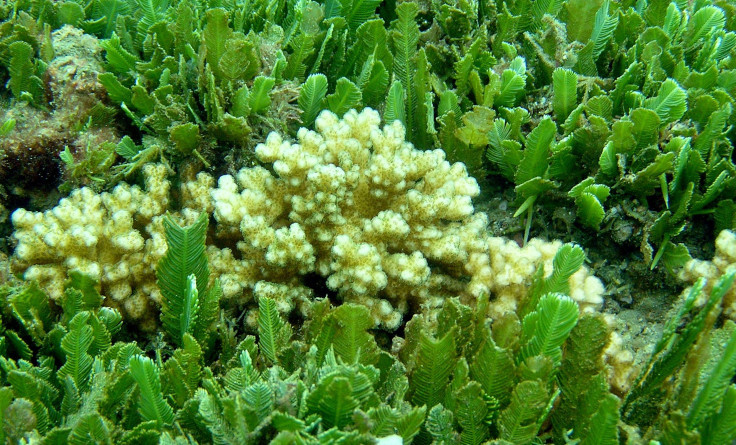Experts believe newly-discovered genes in algae may save Australia's Great Barrier Reef

In a study that has brought relief to scientists and conservation experts, researchers have identified genes in algae that may allow corals to survive in high ocean temperatures. The genes in algae may stop coral bleaching that has rendered most of Australia’s Great Barrier Reef lifeless. With global reefs reeling under the influence of human-made climate change, this is positive news for coral systems across the world.
Researchers from the University of New South Wales (UNSW) have discovered that algae growing in warmer temperatures may actually prevent corals from kicking them out, a process that occurs during coral bleaching. This in turn protects the corals from getting bleached as ocean temperatures rise. The study has been published in Molecular Biology and Evolution.
RELATED: Arctic’s red algae speeding up global warming, causing glaciers to melt fast
Symbiodinium, a special type of algae, provide the bright colour of tropical corals. The algae feed corals through photosynthesis. In return, the corals provide them a place to live. However, when water temperature rises, the Symbiodinium starts releasing toxins that are called reactive oxygen species. The toxins contain destructive compounds such as peroxides that damage both the coral and the algae. However, the UNSW researchers have some good news.
“For the first time, we have uncovered the mechanism that explains why some algae can withstand higher temperatures and avoid bleaching. We found they can switch on genes to produce proteins that neutralise the toxic chemicals,” lead researcher Rachel Levin said in a UNSW press release.
Thus, despite all the bad news, the researchers are trying to find ways through which they can minimise the effects of coral bleaching in world reefs. The team also found evidence that warmer-climate algae and cooler-climate algae have different ways of dealing with heat stress.
The next step the researchers will be taking is to find out if the discovered gene can help more temperate coral avoid bleaching. The gene has also provided interesting insights into how algae and corals deal with heat stress.
“We found that only the algae from the warmer reef can activate specific types of genes when under heat stress to counter the damaging effects of the reactive oxygen species. The risk of coral bleaching in different areas on the Great Barrier Reef could be assessed by using these genes as markers,” Levin added.
The researchers were also fascinated to find that under stress, both types of algae from warmer and cooler climates can switch from their asexual mode of reproduction to sexual mode. Sexual reproduction in algae speeds up evolution and allows the algae to adapt to rising sea temperatures. The experts believe that “this could be a natural ‘golden ticket’ that allows some corals to survive a bleaching event.”





















